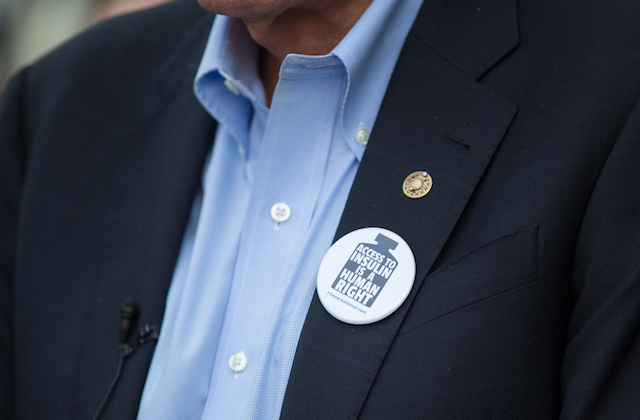Insulin is an effective treatment for diabetes, the third-leading cause of death in the United States. But rising drug prices are making it harder for many to obtain. According to The Guardian, public health advocates believe the U.S. will soon experience a crisis caused by inflated insulin prices, and people of color will be the most negatively impacted.
Diabetes is a disease that affects an estimated 23.1 million Americans. Of those, African Americans have the highest rates of incidence and they are 77 percent more likely to be diagnosed with the condition than Whites. Type 1 diabetes—which affects 1.25 million Americans—requires daily insulin doses to regulate blood sugar levels. Between 2012 to 2016, the average cost of insulin in the U.S. nearly doubled to $5,705 per year for people with type 1 diabetes.
More common is type 2 diabetes, in which patients can produce some insulin, but not enough to control their blood sugar levels. Approximately 90 to 95 percent of diabetics have type 2, and these patients may also be prescribed insulin.
The current price for a vial of insulin, which lasts for 28 days after it’s opened, is $300. “Production costs for a vial of insulin are estimated to cost around $5, while pharmaceutical companies charge as high as $540 per vial and Americans are dying as a result of being unable to afford it in addition to the expensive costs of medical care, and supplies such as syringes and glucose monitors,” reports The Guardian.
A study published in the Journal of the American Medical Association found that one out of four people with diabetes rations their insulin. And, according to The Guardian, Black, Latinx and Asian adults have been hit hardest by escalating prices.
Diabetes advocates are currently pushing for legislation on the state and federal levels to lower insulin costs. This includes the Alec Smith Emergency Insulin Act in Minnesota, which would provide emergency insulin to diabetics unable to afford insulin. Named after a 26-year-old who died from the disease after rationing insulin, the act was passed by the Minnesota House and will be debated in a Minnesota Senate hearing on Thursday (September 26).
Other health advocates say the problem goes beyond changing laws and speaks to a greater crisis facing the American health care industry. “There is a lot of monopoly power, asymmetry of knowledge and power, and as a result you have sky-high prices across American healthcare, in particular the pharmaceutical sector,” Dr. Vikas Saini, co-chair of the steering committee of grassroots health care reform organization Right Care Alliance, told The Guardian. “This is an entire ecosystem of profiteering. We’re going to need systemic fixes and that means people are going to have to organize and mobilize.”
